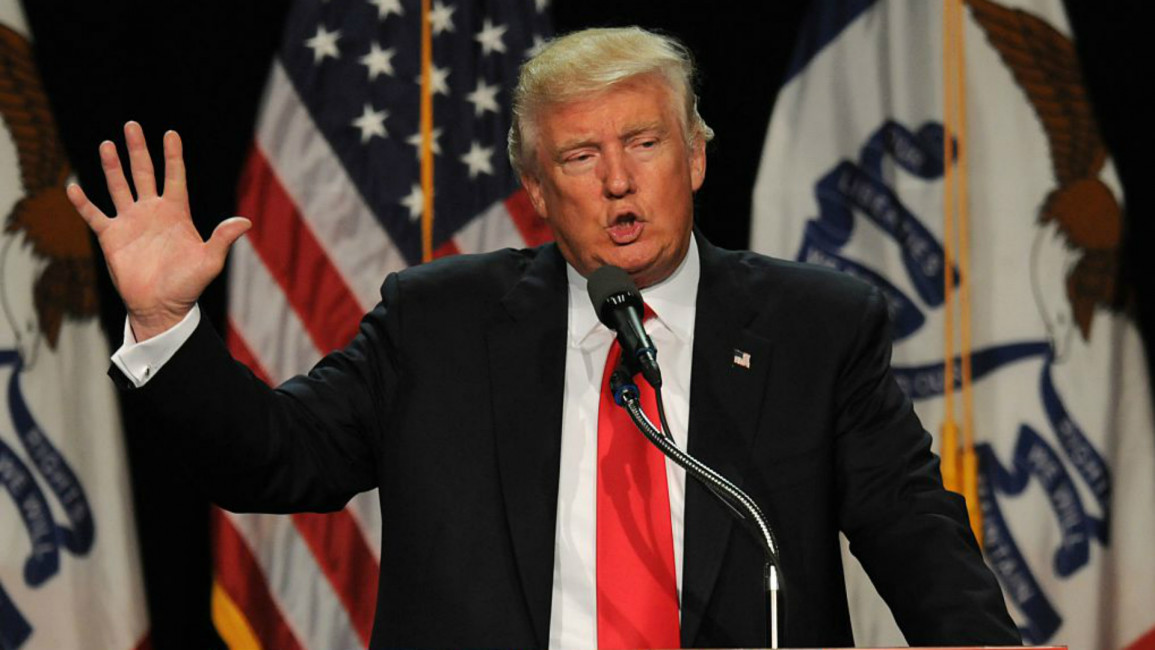
What if Trump decides US Syria policy?
With the US elections only a few months away it's time to start thinking seriously about what Donald Trump's foreign policy could look like. Indeed, when Donald Trump starts to suggest assassinating his political opponent Hilary Clinton you wonder what he'd do to IS?
If President Trump were to take his seat at the White House at the start of 2017, it is likely that the crisis in Syria will still be near the top of the global agenda. So would a Trump presidency result in a shift in Washington's approach to the over five-year-old conflict?
The first point to put in context is Trump's complete lack of political, and therefore foreign policy, experience. Since he's running as an "anti-political elite" candidate experience is considered more like, baggage than an asset. However, a lack of knowledge of the ins and outs of global diplomacy and the intricate nature of the multi-layered global, regional and local nuances of the conflict in Syria may be somewhat irrelevant for a president who has already laid out a domestic priority agenda.
Indeed, there have even been reports that Trump's vice president would lead on foreign policy whilst the president pursues his main goal of "making America great again".
Yet an escalation or worsening of the Syria conflict and the active US pursuit of destroying IS - which marked its second anniversary this month - may force Trump into taking a closer interest in events in the region. In addition, there is often a tendency of US presidents to react to the policies of their predecessors. Obama's reluctance to involve the US too heavily in the Middle East was a by-product of what he (and many others) considered George W Bush's over-involvement.
Obama has been criticised by many for allowing the fires of the Syria conflict to burn, and for standing by while IS expanded across the region. And there is every chance Trump would look to define himself by doing things differently.
 |
The first point to put in context is Trump's complete lack of political, and therefore foreign policy experience |  |
This, perhaps, is the hardest element to factor in and plan for; Trump's unpredictability. Indeed, back in April in a keynote foreign policy speech, Trump argued that "we have to be unpredictable and we have to be unpredictable starting now".
Being actively unpredictable throws up a whole host of options as to what Trump might do in Syria. The most radical is the notion that if frustrated with the current progress of "Operation Inherent Resolve" against IS, President Trump decides to deploy nuclear weapons against the group's key sites. Another unverified report suggests that in discussions with security officials Trump spoke about nuclear weapons quipping that "if we have them, why can't we use them?".
Whilst the prospect of mushroom clouds over Raqqa may seem somewhat unlikely, the more real prospect is a knee-jerk Trump response to an IS attack that tries to bait him into deploying US troops on the ground, which would certainly significantly alter the balance of forces in the country.
A Trump presidency would likely not be great news for Syria's refugees. The prospect of resettlement to the USA - already a minuscule one in reality - would presumably be off the table when the Trump ban on Muslims from countries with terrorism problems kicks in.
Put simply Trump's flagship policy may be a huge border wall with Mexico but he's unlikely to support freedom of movement of refugees elsewhere.
 |
Abandoning the notion of a post-Assad transition would significantly alter the wider international equation on Syria |  |
Perhaps the most interesting component to a Trump Syria policy is relations with Russia. Trump has regularly praised the leadership of President Putin and went on the record recently predicting a future where the USA would "get together with Russia" to "knock the hell out of Isis".
A true alignment with Russia in Syria - something that despite Kerry's best efforts with Lavrov he's been unable to do - would require a policy shift towards the future of Assad. Conveniently, Trump has already addressed this issue saying that he wouldn't have fought so much against Assad.
Abandoning the notion of a post-Assad transition would significantly alter the wider international equation on Syria and could be a fundamental game changer, if traditional US allies follow suit.
In summary Trump's unpredictability offers Syria's brutal and unpredictable conflict more fuel for its all too consuming fire, and Syria-observers look on nervously ahead of the vote on the 8th of November.
James Denselow is an author and writer on Middle East politics and security issues. He is a former board member of the Council for Arab-British Understanding (CAABU) and a director of the New Diplomacy Platform. Follow him on Twitter: @jamesdenselow
Opinions expressed in this article remain those of the author and do not necessarily represent those of The New Arab, its editorial board or staff.




